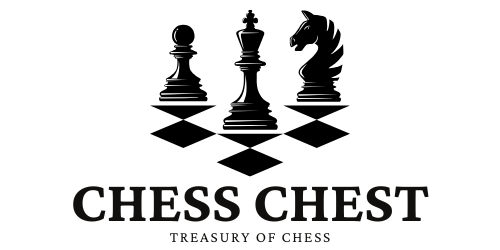For new chess players, finding the right tools to analyze and learn from games is essential. Analysis tools help beginners understand their mistakes, explore new strategies, and get familiar with chess tactics. Here, we’ll explore five beginner-friendly chess analysis tools that offer great insights and an easy learning curve, perfect for players just getting started.
1. Chess.com Analysis Tool
Chess.com’s built-in analysis tool is one of the most accessible for beginners. Available on both desktop and mobile, it offers an intuitive interface and a variety of learning features.
- Features: Real-time game analysis, move-by-move insights, blunder alerts, and opening names.
- Why It’s Great for Beginners: Chess.com provides visual indicators of errors and suggestions for improvement, making it easy to understand what went wrong. The tool also offers feedback on key moves, which helps beginners grasp core game concepts.
- Pros: User-friendly, free version available, large online community.
- Cons: Advanced features require a premium subscription.
2. Lichess Analysis Board
Lichess, a popular free platform, provides a powerful analysis board that’s both accessible and ad-free. With Lichess’s Stockfish integration, players can analyze games move-by-move and learn optimal moves quickly.
- Features: Engine analysis, blunder detection, heatmaps for popular moves, and opening explorer.
- Why It’s Great for Beginners: Lichess’s clean layout and emphasis on usability make it a strong choice for beginners. The platform’s study section also offers guided tutorials, making it easy to practice and improve.
- Pros: Completely free, open-source, accessible on mobile and desktop.
- Cons: Lacks advanced game analysis and puzzle integration found on other platforms.
3. Fritz Online
Fritz is a classic name in chess software, and the Fritz Online platform brings this analysis powerhouse to beginners in a more accessible way. With its straightforward tools, beginners can learn from their games and try new strategies.
- Features: Move evaluation, blunder warnings, tactical exercises, and built-in tutorials.
- Why It’s Great for Beginners: Fritz Online combines ease of use with a rich learning experience, offering tools to analyze mistakes and visualize tactics.
- Pros: Easy to navigate, beginner-friendly, includes tutorials.
- Cons: Limited features in the free version; full access requires a paid subscription.
4. DecodeChess
DecodeChess is unique in its approach to game analysis, offering AI-generated explanations that are easy to understand for beginners. Unlike traditional engines that provide only optimal moves, DecodeChess explains why each move works (or doesn’t), making it a great learning tool.
- Features: AI-powered explanations, error analysis, move alternatives, and game evaluations.
- Why It’s Great for Beginners: DecodeChess breaks down each move in simple language, making it easy for beginners to grasp basic concepts.
- Pros: Explanations in plain language, visually appealing, beginner-focused.
- Cons: Limited free access; best features require a subscription.
5. SCID vs. PC
SCID vs. PC is a free, open-source analysis tool that’s packed with features for players who want a customizable analysis experience. Although a bit more complex, beginners will appreciate its adaptability and power as they grow more familiar with chess analysis.
- Features: Game storage, engine integration, customizable analysis settings, and extensive database capabilities.
- Why It’s Great for Beginners: While SCID vs. PC requires a bit of setup, its flexibility makes it a powerful choice as beginners advance in their skills.
- Pros: Free and open-source, customizable, compatible with different engines.
- Cons: Steeper learning curve; more suitable for intermediate beginners.
Summary
For beginners exploring the world of chess analysis, finding the right tool can make all the difference. Chess.com and Lichess offer easy-to-navigate platforms with powerful free tools, while DecodeChess provides unique, beginner-friendly explanations. Fritz Online brings a classic touch with straightforward analysis, and SCID vs. PC offers flexibility for those ready to dive a little deeper. With these tools, new players can analyze their games, understand their mistakes, and start mastering the fundamentals of chess analysis.




